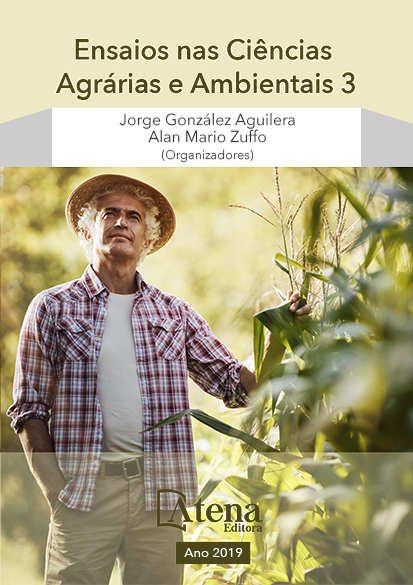
DESENVOLVIMENTO DE MUDAS DE MARACUJAZEIRO AMARELO ENXERTADO EM PORTA-ENXERTO SILVESTRE
O maracujazeiro é acometido por
diversos patógenos de solo e a técnica da
enxertia com porta-enxerto resistente tem sido
estudada como uma alternativa promissora de
controle. Sendo assim, o objetivo desse trabalho
foi avaliar o desenvolvimento inicial de dois
genótipos maracujazeiro-amarelo enxertados
no porta-enxerto silvestre Passiflora gibertii.
Transcorridos 60 dias após a semeadura,
foi realizada a enxertia do tipo garfagem em
fenda cheia. As mudas foram mantidas em
viveiro telado em delineamento experimental
inteiramente casualizado. Um mês após a
enxertia, avaliaram-se diâmetro de caule do
porta-enxerto e enxerto, número de folhas e
altura da planta (porta-enxerto e enxerto). A
porcentagem de pegamento foi de 100% para
as duas combinações porta-enxerto/copa e,
as mudas tiveram boa cicatrização e bom
desenvolvimento.
DESENVOLVIMENTO DE MUDAS DE MARACUJAZEIRO AMARELO ENXERTADO EM PORTA-ENXERTO SILVESTRE
-
DOI: 10.22533/at.ed.39119160112
-
Palavras-chave: Enxertia; Passiflora; Produção de mudas.
-
Keywords: grafting; Passiflora; Seedling production.
-
Abstract:
Passion fruit is affected by several
soil pathogens and the technique of grafting
with resistant rootstock has been studied as a
promising alternative for control. Therefore, the
objective of this work was to evaluate the initial
development of two passion fruit genotypes
grafted on the wild rootstock Passiflora gibertii.
After 60 days after sowing, grafting was
performed in a full slot. The seedlings were kept
in a completely randomized design nursery.
One month after grafting, stem diameter of
rootstock and graft, number of leaves and
height of plant (rootstock and graft) were
evaluated. The percentage of glue was 100%
for the two rootstock / crown combinations
and the seedlings had good healing and good
development
-
Número de páginas: 15
- Elismar Pereira de Oliveira


